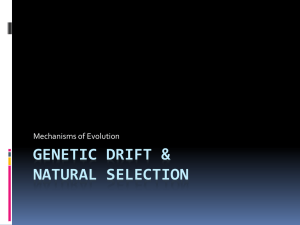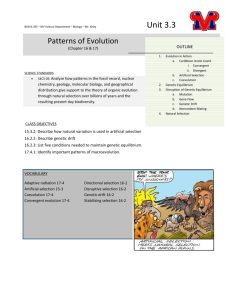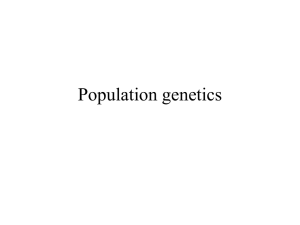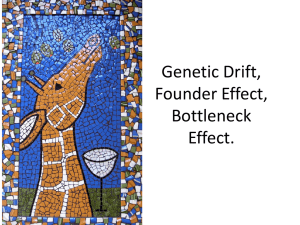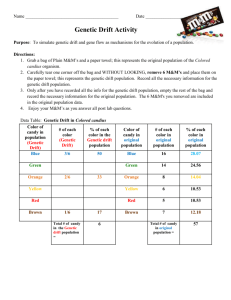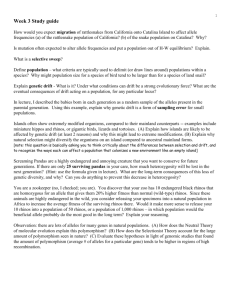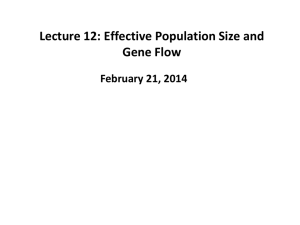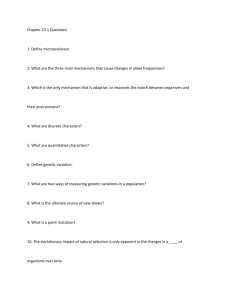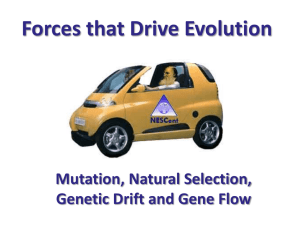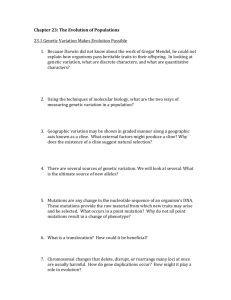TRG 23.1 Genetic Drift
advertisement
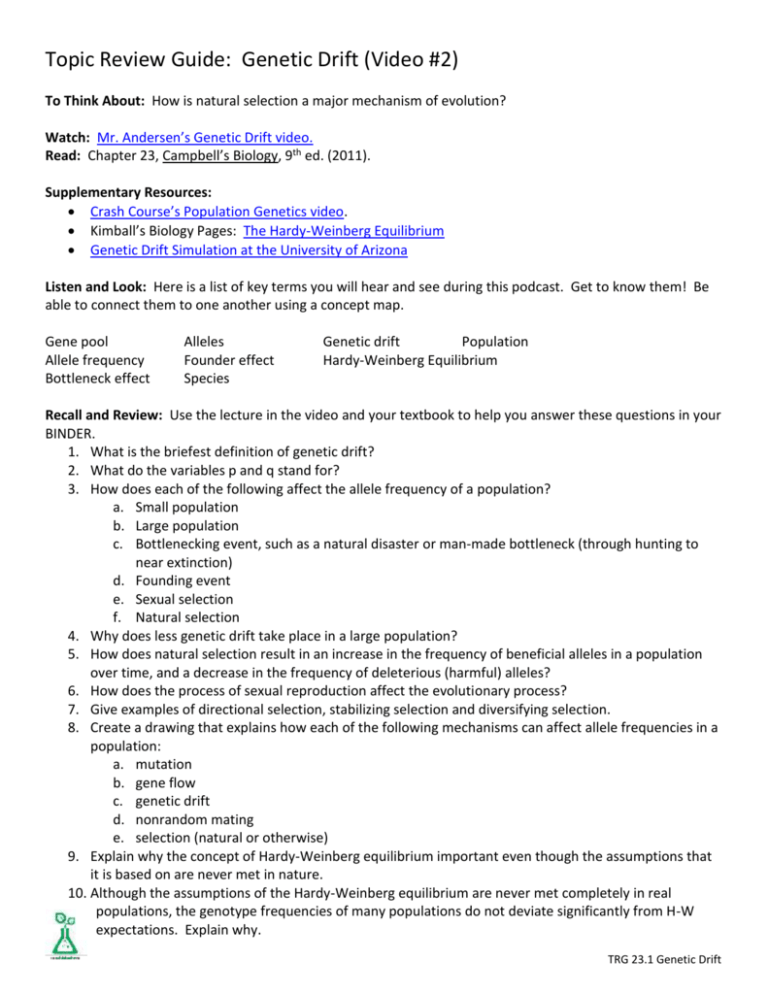
Topic Review Guide: Genetic Drift (Video #2) To Think About: How is natural selection a major mechanism of evolution? Watch: Mr. Andersen’s Genetic Drift video. Read: Chapter 23, Campbell’s Biology, 9th ed. (2011). Supplementary Resources: Crash Course’s Population Genetics video. Kimball’s Biology Pages: The Hardy-Weinberg Equilibrium Genetic Drift Simulation at the University of Arizona Listen and Look: Here is a list of key terms you will hear and see during this podcast. Get to know them! Be able to connect them to one another using a concept map. Gene pool Allele frequency Bottleneck effect Alleles Founder effect Species Genetic drift Population Hardy-Weinberg Equilibrium Recall and Review: Use the lecture in the video and your textbook to help you answer these questions in your BINDER. 1. What is the briefest definition of genetic drift? 2. What do the variables p and q stand for? 3. How does each of the following affect the allele frequency of a population? a. Small population b. Large population c. Bottlenecking event, such as a natural disaster or man-made bottleneck (through hunting to near extinction) d. Founding event e. Sexual selection f. Natural selection 4. Why does less genetic drift take place in a large population? 5. How does natural selection result in an increase in the frequency of beneficial alleles in a population over time, and a decrease in the frequency of deleterious (harmful) alleles? 6. How does the process of sexual reproduction affect the evolutionary process? 7. Give examples of directional selection, stabilizing selection and diversifying selection. 8. Create a drawing that explains how each of the following mechanisms can affect allele frequencies in a population: a. mutation b. gene flow c. genetic drift d. nonrandom mating e. selection (natural or otherwise) 9. Explain why the concept of Hardy-Weinberg equilibrium important even though the assumptions that it is based on are never met in nature. 10. Although the assumptions of the Hardy-Weinberg equilibrium are never met completely in real populations, the genotype frequencies of many populations do not deviate significantly from H-W expectations. Explain why. TRG 23.1 Genetic Drift Learn More: To learn more about genetic drift, use the links below: Brief video tutorial about genetic drift (Lego people!) UC Berkeley’s Understanding Evolution: Genetic Drift PBS’ Evolution site: The Founder Effect and Polydactyly Genetic drift simulator at UConn TRG 23.1 Genetic Drift
